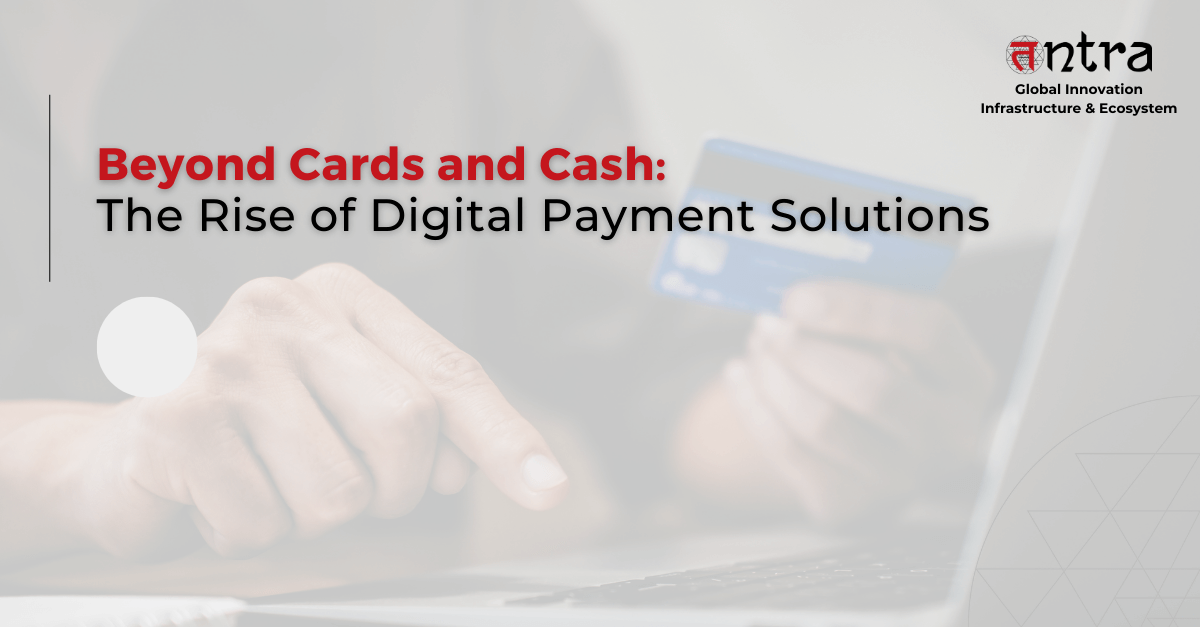
Beyond Cards and Cash: The Rise of Digital Payment Solutions
Table of Contents
ToggleDigital payments are reshaping modern economies by offering unmatched convenience, promoting financial inclusion, and enhancing transaction security. They empower small businesses, streamline operations, and enable individuals without bank access to participate in the economy. This transformation stimulates consumer spending and drives innovation, leading to overall economic growth. As we embrace digital transactions, the potential for a more inclusive and prosperous economy is vast and exciting. Continue reading to learn more.
One of the clearest illustrations of an outsider’s function in the financial services sector is Starbucks. The coffee chain credits its mobile success to a simplified process that begins without patrons ever leaving their homes. According to Bloomberg, over 7 million orders were placed at US cafés using mobile devices in February. Approximately 15% of those payments and 3% of all transactions are made using the order-ahead option.
The coffee company provides the biggest and most comprehensive mobile ecosystem of any, with over 12 million Starbucks Rewards members (up 18% year over year), 8 million mobile-paying customers—one out of three now use Mobile Order & Pay—and over $6 billion loaded onto prepaid Starbucks Cards in North America in the last year alone.
Starbucks has not only established itself as a unique example of a successful use of loyalty programs to promote mobile payments, but it also understands how to create advantageous alliances to back its approach. The company just became the first retail brand in China to integrate and launch a digital payment and social gifting experience that is relevant to the local community on WeChat. Tencent Holdings and Starbucks announced at the beginning of December that they had formed a strategic alliance to jointly develop a new social gifting function for WeChat, the top mobile social communications platform in China, in the early months of 2017.
(Source: Prove)
Digital Payments Making their Way Across Global Economies
In terms of transaction value, the global digital payment solutions market was estimated to be worth USD 3.53 trillion in 2018 and is expected to grow at a compound annual growth rate (CAGR) of 24.4% to reach USD 19.89 trillion by 2026. In 2018, North America held a 27.2% market share, dominating the global market.
Globally, the number of cashless transactions per person increased from 91 to 135 between 2017 and 2020. While the growth in high-income economies is projected to have been 17% during the same period, this number has doubled overall in low and middle-income economies (LMICs).
How Digital Payments are Empowering Modern Economies
Digital payments have literally transformed the pace of everyday transactions in the fast-changing world. They have managed to change not only an individual’s personal consumerist behavior but also supported the empowerment of modern economies in a lot of areas. This happens through ease, security, and access, leaving a ripple effect that eventually improves economic growth.
- Convenience at Our Fingertips
The benefit of a digital payment software product engineering solutions may perhaps lie in their unprecedented convenience. Consumers are now able to shop at any time anywhere with the touch of a smartphone or clicking of a computer. For small businesses and entrepreneurs, this is hugely helpful, since it can eliminate some of the constraining restrictions that come from physically handling cash.
Digital payment systems, many times, have inbuilt facilities that help the business proprietor to manage their money efficiently. Instant transaction records, expense tracking, and even customer relationship management enable companies to operate efficiently and avoid administrative tasks, thereby concentrating on growth.
- Promotion of Financial Inclusion
Another instrument for financial inclusion – especially for the developing economies-is digital payments. Millions of people around the world are unbanked today; most don’t have access to conventional banking facilities either because they face geographical, economic, or social exclusion barriers. For these purposes, mobile wallets and P2P payment systems have been successful as viable alternatives.
For instance, in the cases of regions with low connectivity to the bank’s operational branches, mobile payment solutions will offer residents an economic platform. The farm produce may be paid directly by consumers, and artisans may sell their crafts online without a need for a bank account. More access to financial services may enable the marginalized groups to participate in and share the benefits of economic development.
- Enhancing Security and Curbing Fraud
Digital payment software product engineering services have intrinsic security features that enhance trust in financial transactions by protecting payments and ensuring online security. Advanced encryption, biometric verification, and real-time monitoring minimize the risk of fraud compared to cash transactions. Consumers feel safer when making purchases online, thereby boosting overall spending and stimulating economic activity.
Digital payment methods have minimized cash handling risks related to theft. The adoption of the methods has decreased operational costs for companies while free up resources for growth-driving functions.
- Improving Economic Development
In principle, the widespread adoption of digital payments actually has a pretty substantial impact on economic growth since it encourages consumer spending, people being more willing to spend when knowing they can do so efficiently and conveniently. It encourages innovation since businesses are incentivized to adopt new technologies and create better customer experiences.
Governments are also using digital payment systems to improve tax collection and decrease the shadow economy. The easier it is to track revenue with digital recording of transactions, the more businesses are compelled to pay their fair share. This can result in more robust public services and infrastructure, further supporting economic development.
Final Thoughts
As we continue into the digital age, payment expansion will drive the adoption of digital payments, propelling us closer to a cashless society. These systems are transforming the landscape of commerce and finance by enhancing convenience, bringing more people into the mainstream financial system, improving security, and spurring economic growth. Embracing the digital revolution empowers both consumers and businesses, building a foundation for an increasingly inclusive and prosperous world economy. The future is undeniably digital, and economic empowerment through digital payments holds massive potential.
Tntra is a leading FinTech software development company with experts who have built world-class fintech applications that will transform the future of payments. Connect with us today!





